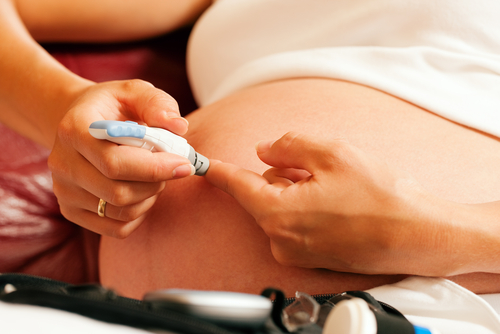 Once pregnant, diabetic women are at high risk for several negative birth outcomes. Through preconception care (PCC), these risks can significantly be decreased by helping mothers control their levels of glucose. As a result, babies will be delivered healthier and less money will be spent in treating difficult pregnancies or lifelong medical problems and complications. It estimated that PCC for diabetic pregnant women could save $5.5 billion in health-related expenses and lost of productivity over affected babies’ lifetime. The study was published in the American Journal of Obstetrics & Gynecology in its latest issue.
Once pregnant, diabetic women are at high risk for several negative birth outcomes. Through preconception care (PCC), these risks can significantly be decreased by helping mothers control their levels of glucose. As a result, babies will be delivered healthier and less money will be spent in treating difficult pregnancies or lifelong medical problems and complications. It estimated that PCC for diabetic pregnant women could save $5.5 billion in health-related expenses and lost of productivity over affected babies’ lifetime. The study was published in the American Journal of Obstetrics & Gynecology in its latest issue.
Diabetes causes several complication in pregnant women such as birth defects, preterm deliveries, and perinatal deaths. Nevertheless, through PCC, it is possible diminish the frequency of these negative outcomes by ameliorating glucose levels before and during the firsts stages of a woman’s pregnancy. Diabetes affects and worsens both child and mother, and represents a financial burden to payers and society.
Researchers and Economists from the Centers for Disease Control and Prevention (CDC) assessed how much PCC could help save by avoiding negative birth outcomes. About 2.2 percent of the U.S. births are to pregnant women with pre-existing diabetes — pre gestational diabetes mellitus (PGDM) — some of which have had no type of diabetes diagnosis before. The CDC study shows that $4.3 billion in expenses could be avoided with effective PCC, and if the approach applied to undiagnosed diabetic women, an extra $1.2 billion could be saved.
Cora Peterson, PhD, lead researcher from the National Center for Injury Prevention and Control, said in a press release: “We estimated thousands of adverse birth outcomes might be prevented each year among U.S. women with PGDM through universal PCC at an estimated lifetime societal cost savings of up to $5.5 billion, including nearly $1 billion in direct medical costs (…) Our results suggest a substantial health and cost burden associated with PGDM that could be prevented by universal PCC, which might offset the cost of providing such care.”
Besides the financial aspect, PCC could avoid serious birth complications. According to the study’s estimates, 1,872 perinatal deaths, 3,725 birth defects, and 8,397 preterm deliveries could be avoided each year.
“The preconception period is critical for preventing adverse birth outcomes in women with PGDM. By some estimates, nearly half of U.S. pregnancies, including pregnancies among women with PGDM, are unplanned (…) To prevent adverse birth outcomes among women with undiagnosed diabetes, diagnosis in the preconception period is needed; the first step would be screening women of reproductive age to identify those with undiagnosed diabetes,” concluded Dr. Peterson.


